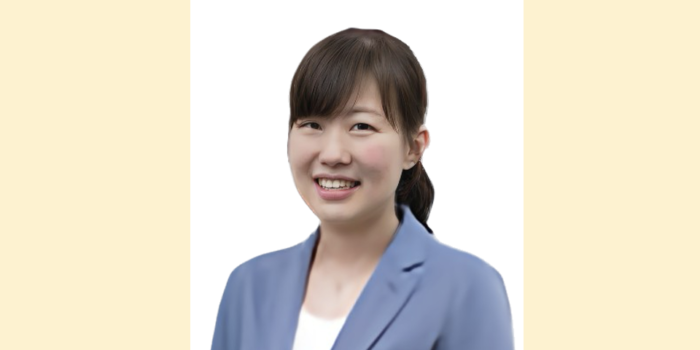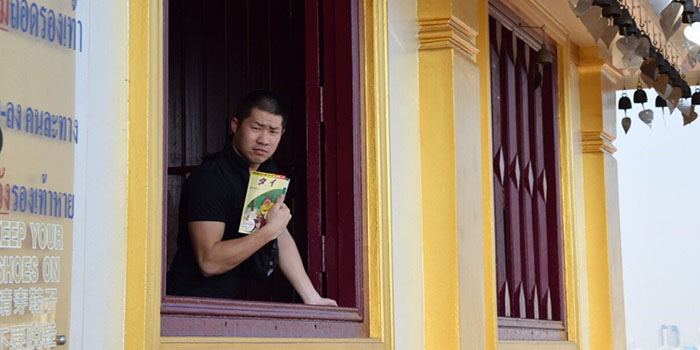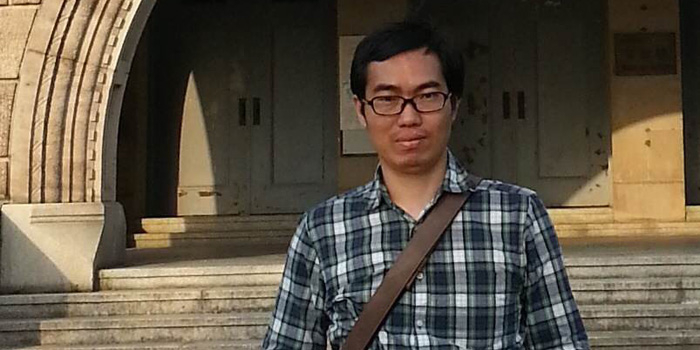Research Interest:
- Economics of Education, Child Labor, Technical Vocational Education and Labor Market
Education:
- Ph.D. Candidate, GSICS, Kobe University
- Master of Economics, Kobe University (Mar. 2011)
- Bachelor of Arts, Nara University (Mar.2006)
Experiences:
- Research Consultant at PADECO Co., Ltd. (Jul. – Sep. 2011)
- Intern at United Nations Educational, Scientific and Cultural Organization Institute for Statistics (UIS), Montreal, Canada (Aug. – Nov. 2010)
- Student Coordinator for Yemen at BRIDEG Project Counterpart Training, Japan (Jun. 2010)
- Intern at Ministry of Education and Sports, Business and Technical Vocational Education and Training Sector, Uganda (Aug. – Sep. 2009)
- Program Officer atJohokikakuCooperative Center,Japan (Apr. 2006 – Mar. 2009)
Publications:
- Umeno, T. (2011).A Comparison of Labor Market Outcomes between Vocational and Academic Education. Asian Educational Study Monographs, Kyoto University,10, 23-38.
- Umeno, T. (2010).Technical Vocational Education and Training in Uganda: Skills Development through UGAPRIVI. In Ogawa, K. (Eds.),Education Policies in Uganda, Kobe University, Graduate School of International Cooperation Studies, 38-48.
Academic Associations:
- Comparative and International Education Society
- Japan Comparative Education Society
- Japan Society for International Development
Academic Conference Presentation:
- Umeno, T. “Determinants of School Attendance and Children’s Work in Vietnam”, Proposal presented at the 50th Japan Comparative Education Society’s Annual Meeting, Nagoya University, Japan, July, 2014.(E)
- Umeno, T. “Child Labor and Schooling Decisions in Vietnam”, Proposal presented at the 49th Japan Comparative Education Society’s Annual Meeting, Sophia University, Japan, June, 2013. (E)
- Umeno, T. “The Value of Technical Vocational Education in the Labor Market: the Case of Vietnam”, Paper presented at the 48th Japan Comparative Education Society’s Annual Meeting, Kyushu University, Japan, July, 2012. (E)
- Umeno, T. “International Comparison of Aid Dependency in the Education Sector: Regional, Income Level, and Time-series Perspectives”, Paper presented at the 47th Japan Comparative Education Society’s Annual Meeting, Waseda University, Japan, June, 2011.(E)
- Umeno, T. “Returns to Technical Vocational Education and Training under Transitional Country: in Case of Vietnam”, Paper presented at the 55th Comparative and International Education Society’s Annual Conference, Montreal, Canada, May, 2011. (E)
- Umeno, T. “International Comparison of Aid Dependency in the Education Sector: Regional, Income Level, and Time-series Perspectives”, Paper presented at the meeting of UNESCO Institute for Statistics, Montreal, Canada, November, 2010.(E)
- Umeno, T. “TVET in Uganda: The Contribution of UGAPRIVI toward Skills Development”, Paper presented at the 54th Comparative and International Education Society’s Annual Conference, Chicago, USA, March, 2010.(E)
- Umeno, T. “A Comparison of the Labor Market Outcomes between Vocational and Academic Education in Vietnam”, Proposal presented at the 11th Japan Society for International Development’s Spring Meeting, Hokkaido University, Japan, June, 2010.(J)
- Umeno, T. “A Comparison of the Labor Market Outcomes between Vocational and Academic Education in Vietnam”, Proposal presented at the 31st Asia Educational Research Meeting, Kyoto University, Japan, June, 2010.(J)
- Umeno, T. “A Comparison of the Labor Market Outcomes between Vocational and Academic Education in Vietnam”,Proposal presented at the 46th Japan Comparative Education Society’s Annual Meeting, Kobe University, Japan, June, 2010.(E)
- Umeno, T. “TVET in Uganda: The Contribution of UGAPRIVI toward Skills Development”, Paper presented at the 4th Africa Education Research Forum, Naruto University of Education, Japan, October, 2009 .(E)
Language/ Skills:
- English (Fluent), Japanese (Native), Vietnamese(Basic)
- STATA, HP, Microsoft Office (Word, Excel, Power Point)
Message to Potential Candidates to Ogawa Seminar:
If you want to develop your analytical skills and have a chance of working with International Organizations, this is achievable by studying under Prof. Ogawa. You are received appropriately by Prof. Ogawa and fellow seminar students and you will be provided with the opportunity and necessary support to conduct field research in developing countries, as well as and doing internship in International Organizations such as World Bank and UNESCO. These experiences are necessity if your career goal is to work with an International Organization as education specialist or education economist. Ogawa seminar is the best in terms of providing and improving knowledge and skills required in research and the job market in national and internal settings!






